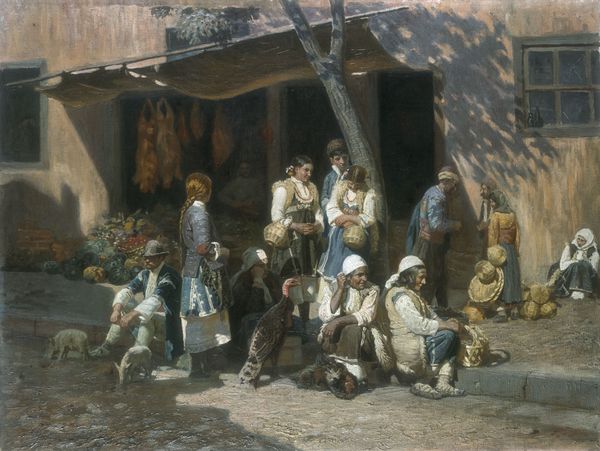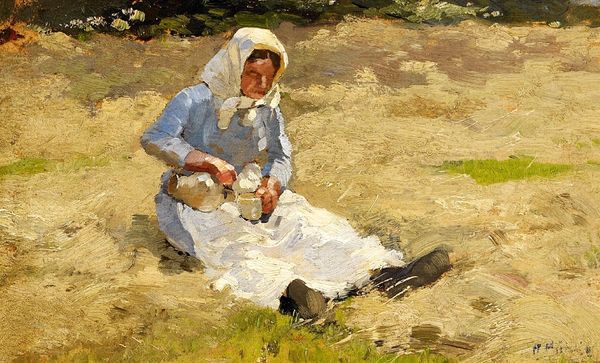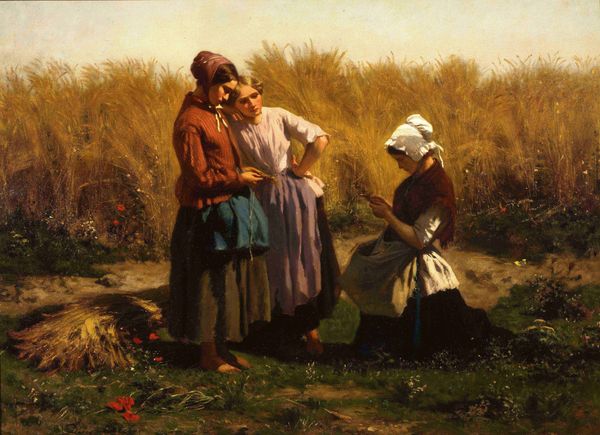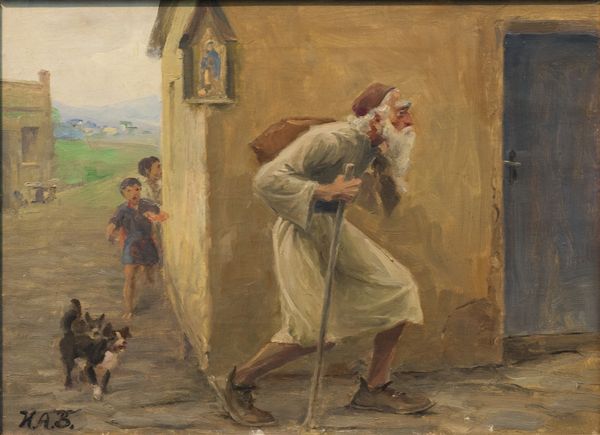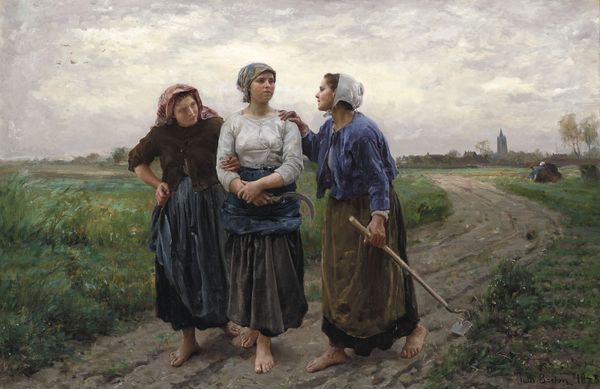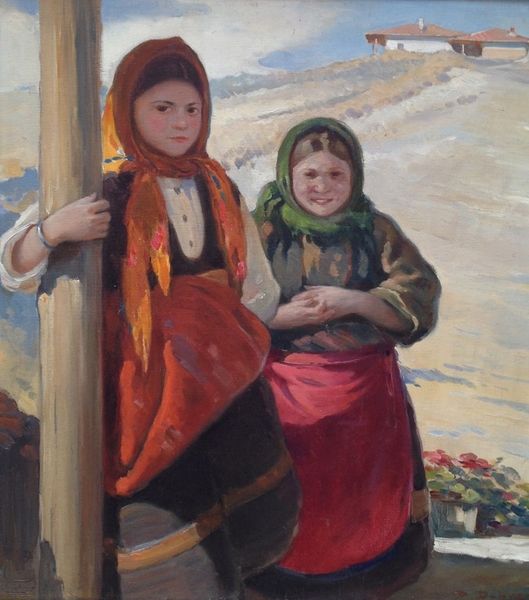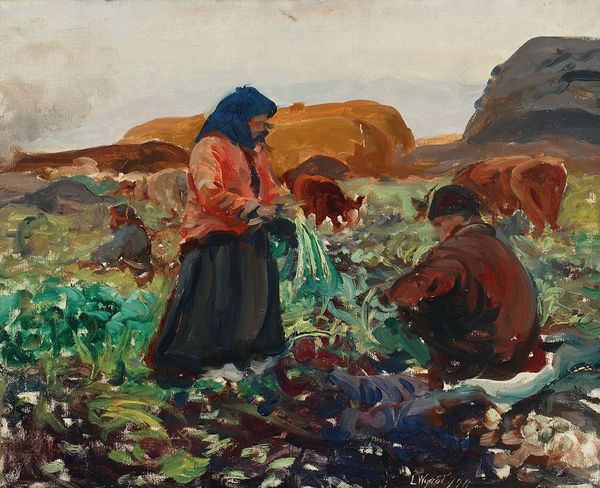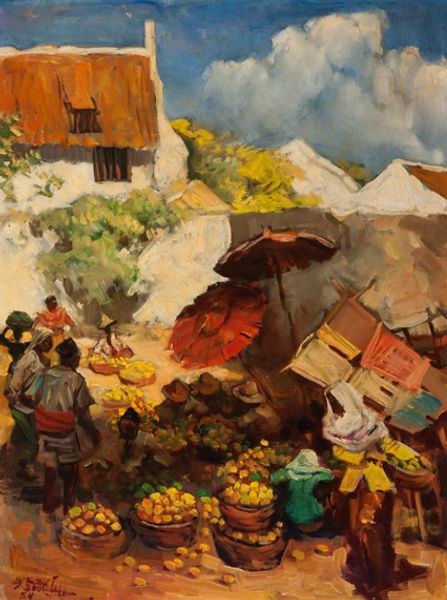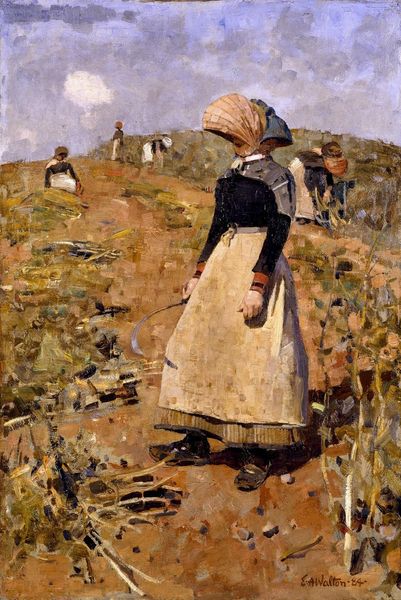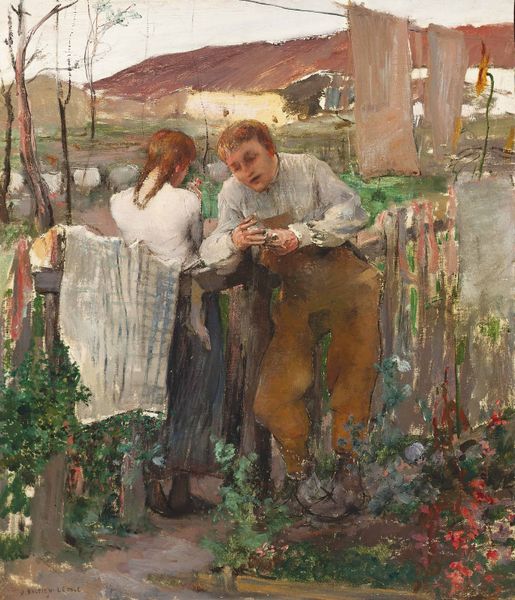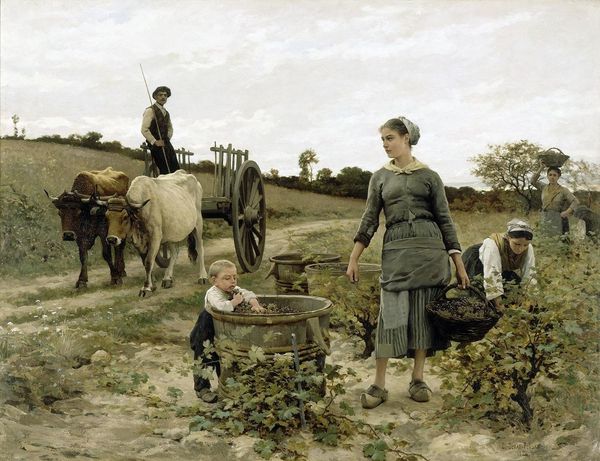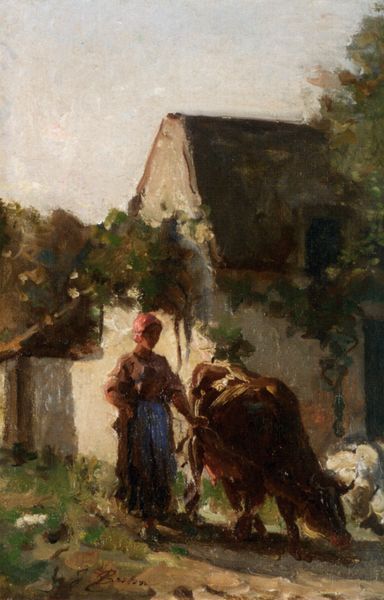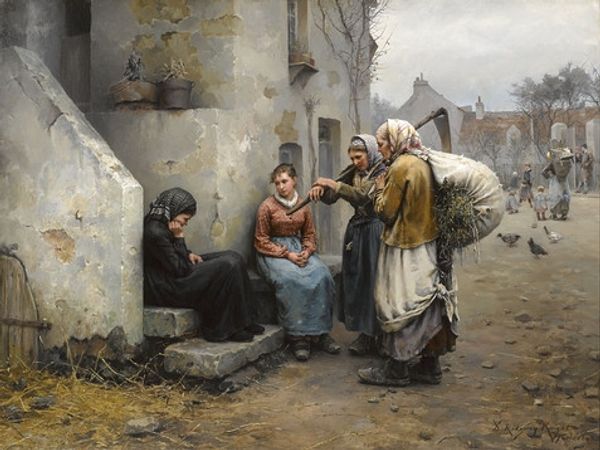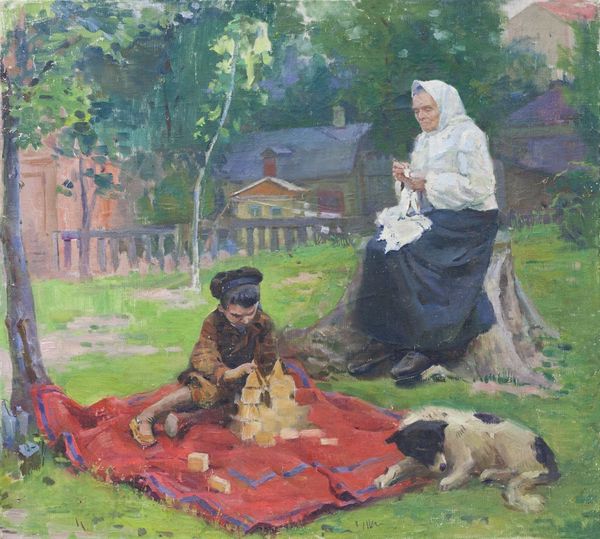
painting, oil-paint
#
portrait
#
painting
#
oil-paint
#
oil painting
#
genre-painting
#
portrait art
#
watercolor
Copyright: Public domain
Curator: Hugo Mühlig painted this "Study of a Peasant Woman," an oil on canvas, and it appears to capture women performing daily activities. Editor: My immediate reaction is… unfinished business, like a dreamscape of figures half-emerged, soft-edged, and somewhat melancholy. Is it the muted palette? Curator: The painting resonates with an undercurrent of the working woman’s narrative within nineteenth-century European genre scenes, prompting questions about visibility, labor, and gender dynamics in rural settings. The composition creates a space to explore the portrayal and intersectional perspectives in peasant societies, including their daily struggles, class, and power. Editor: Exactly! This is like a backstage pass to labor, capturing these women amidst their routines with an intimacy that defies distance. Mühlig doesn't just present; he suggests a whole universe, blurring details. I am curious as to the artist’s intentions and his emotional connection to their life. Curator: While some details are omitted or smudged, each figure contributes significantly. The background adds dimension to the narrative, framing labor through the intersectional elements like class. Do these elements represent solidarity between women in this socioeconomic strata, or are they meant to portray mundane social realities? Editor: It's a slice of life, I think. They are placed against muted, almost transient settings. This painting avoids sentimentalization, yet a subtle sympathy for the woman prevails. Curator: The application of oil paint could symbolize and challenge traditional and class notions and roles assigned to these individuals within that social hierarchy. Editor: Well, beyond any definitive narrative, for me this artwork vibrates with a certain authenticity. It is about quiet observation, about noticing the poetry embedded in daily life. Curator: Absolutely. These quiet observations allow for conversations surrounding their identities and gender, giving meaning to our present context. Editor: It makes you ponder about their world.
Comments
No comments
Be the first to comment and join the conversation on the ultimate creative platform.
